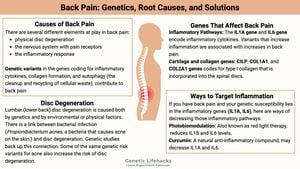Efforts to Combat Low Dengue Vaccination Rates Intensify Across Brazil
Despite the efforts to combat dengue, Brazil faces challenges with low vaccination rates, prompting health authorities to expand eligibility and ramp up awareness campaigns.
Joinville, located in Santa Catarina, stands at the forefront of the latest immunization initiatives against dengue fever, as the local government has newly allowed adolescents aged 15 and 16 to receive the dengue vaccine starting from February 12. The move, expected to accommodate around 6,000 young residents, does not interfere with the original target group comprising children aged 10 to 14. Currently, vaccine coverage for the first dose stands at 54%, with only 27% for the second dose, far below the needed community immunity.
"The Health Department is actively working to reach out to these children and adolescents to guarantee complete vaccination," stated Aline Berkenbrock, the manager of Health Surveillance for Joinville's Health Department. Parents must provide relevant documentation, including vaccination cards and identification, for their children to receive the vaccine.
With 6.37 million doses distributed, only about 3.2 million vaccinations have been administered, raising concerns among officials. The Ministry of Health has expressed alarm, especially considering this group reportedly experiences the highest hospitalization rates due to dengue, second only to the elderly. The opportunity to address the vaccination needs extends beyond mere logistics; it is filtered through the lens of public concern and health strategy.
Vivian Lee, medical director at Takeda, reiterates concerns about vaccination rates. She noted, "Our aim is to clarify misinformation and demonstrate the vaccine's safety. Recognizing how many people are only receiving their first dose becomes increasingly alarming. The second dose is not merely optional; it is necessary for adequate protection against dengue. Without it, individuals remain vulnerable."
This message resonates especially strong as Brazil enters its second year of offering the QDenga vaccine. Although the vaccine has seen distribution of approximately 9 million doses this year, Lee points out, "This volume still falls short of demand. We aim to increase our focus on vaccination campaigns and educational outreach to properly inform the population about vaccine efficacy. Only through educating the public can we hope to dispel the myths surrounding vaccination."
The Takeda vaccine has been approved for individuals aged between 4 and 60 but has not been authorized for the elderly, presenting another hurdle. With more studies underway to evaluate the vaccine's impact on those over 60, Lee confirmed, "We are committed to providing comprehensive studies and feedback from our international research efforts, which will help guide future distribution efforts and vaccination strategies."
The Brazilian government has identified regions with high transmission rates and initiated vaccination campaigns within 521 municipalities classified as endemic to dengue, with criteria focused on population size, prior infection rates, and sorotype prevalence. Meanwhile, Joinville authorities and others continue to address the direct issue of vaccine hesitancy through proactive campaigns.
Dr. Berkenbrock emphasized the importance of timely vaccination stating, "The vaccine is administered over two doses, spaced three months apart, and vacillation on securing this must be reduced." Current strategies highlight systematic outreach to assure doses are not just stored but actively administered.
With persistence, health officials are determined to tackle these recent hurdles through community engagement, information distribution, and close collaboration with local health centers. Joinville health services remain available at multiple sites across the city, addressing accessibility and convenience factors, as parents and guardians are urged to initiate immunizations without delay.
This widespread issue provokes concerns not merely for individuals but for Brazil as it strives for improved public health coordinates as dengue continues to pose significant health risks. Studies suggest strain variation and fluctuation, such as the arising prevalence of serotype 3, underlines the urgency for comprehensive immunization efforts, well beyond the current citizen response rate.
Reflecting on the concerted state actions, Lee pointed out how increasing impetuses for vaccine distribution underlie patient safety as studies continue to evaluate immune responses against varying serotypes historically experienced within Brazil. Vaccination strategies supported through funding and research are seen as pathways to broader acceptance and safety within communities, aiming for future health resilience.
The pervasive hesitancy about vaccine efficacy, particularly among target demographics, continues to require intensive focus, education, and collaboration among health stakeholders. Health reform efforts must work cohesively to articulate advantages to vaccination, assure consequence-free programs, and advocate proactive health participation.
The path to higher vaccination rates against dengue is paved with both challenges and opportunities for community engagement, effective outreach, and committed public health initiatives.
Completing the vaccination scheme will be imperative for developing collective immunity, bolstering efforts to reduce dengue outbreaks significantly. Therefore, health departments nationwide are taking actionable steps not only to supply vaccines but also to educate communities about holistic health and active disease prevention.



